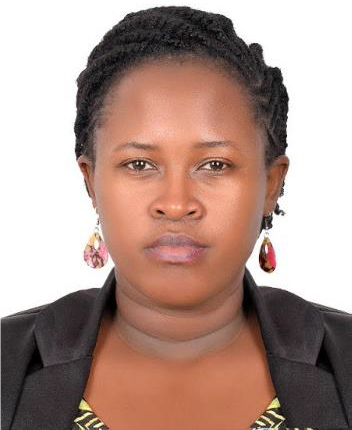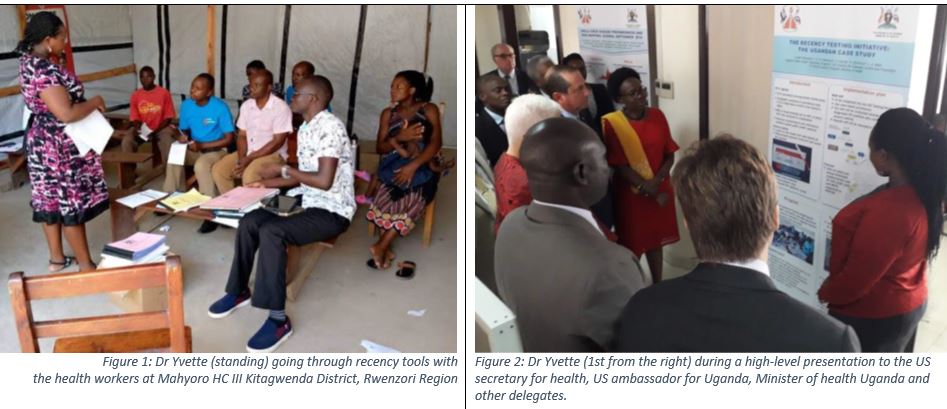 |
Dr Yvette Wibabara
|
ABOUT THE FELLOWYvette holds a Master of Science in Clinical Epidemiology and Biostatistics from Makerere University with a background in human medicine. I joined this program in 2019 and what captured my mind is the training through service in applied epidemiology and public health leadership. I have been equipped with knowledge and skills through a hands-on experience. The program has complemented my previous training by engaging me in large dataset analyses, scientific writing, national level meetings, scientific presentations, trainings to mention but a few, hence building my capacity. I have attained a spirit of excellence and problem-solving skills in my practice as an epidemiologist. During my time as a Fellow, I was attached to the STI/AIDS Control Program (ACP). While there, I led various national level trainings and supervisions, supporting mainly the strategic information and the prevention arms of the program. Achievements at the Host Site
Fellowship program specific achievementsOutbreak investigations and other projects
Conference presentations
Written communication
Manuscripts written
Summary of Epidemiological Study: Title: Improving Recency Testing in Rwenzori Region Using Continuous Quality Improvement Approaches, Uganda 2020 Background: a bid to achieve HIV epidemic control, Uganda has initiated point-of-care recency testing using the Asanté™ HIV-1 Rapid Recency™ Assay test kit, which distinguishes between recent (acquired within 12 months) and longstanding infections. Results are to be used for surveillance to identify hot spots for new infections through geo-mapping and guide targeted interventions in the affected regions. Methods: We implemented the Quality Improvement Project in Nyabbani and Mahyoro HC III‟s in Kitagwenda district, Rwenzori region. We identified the root causes of the gap in Recency testing. We collected data from the HIV testing register, Recency Testing logbook, and consent forms to serve as our baseline. The data characterized a gap in enrollment to Recency. Using the fish bone analysis, we identified the problem. We conducted continuous medical education sessions on Recency testing for the testers, provided tools for proper documentation (consent forms) and trained the testers on how to fill the documents. There was monthly data collection, analysis and interpretation of results. Results: There was an increase in the proportion of HIV patients enrolled for Recency in both facilities. For Mahyoro the percentage of patients enrolled for recency increased from 0 % in the three months from site activation to 80% in May-June 2020 in while in Nyabbani HCIII the percentage enrollment rose from 0% to 90% during the same period. By September 2020 when the project ended, all facilities had reached 100% enrollment into Recency Conclusion: The project achieved an improvement in Recency enrollment in Mahyoro and Nyabbani HC III‟s from 0% to 100%. This was attributed continuous mentoring and monitoring visits. The implementing teams need regular refresher trainings to improve on their confidence and knowledge in conducting recency testing. We recommend continued mentorship and support supervisions for healthcare workers involved in recency training. Key Skills/lessons learnt during the fellowship
|
|
Sign in
Sign in
Recover your password.
A password will be e-mailed to you.

